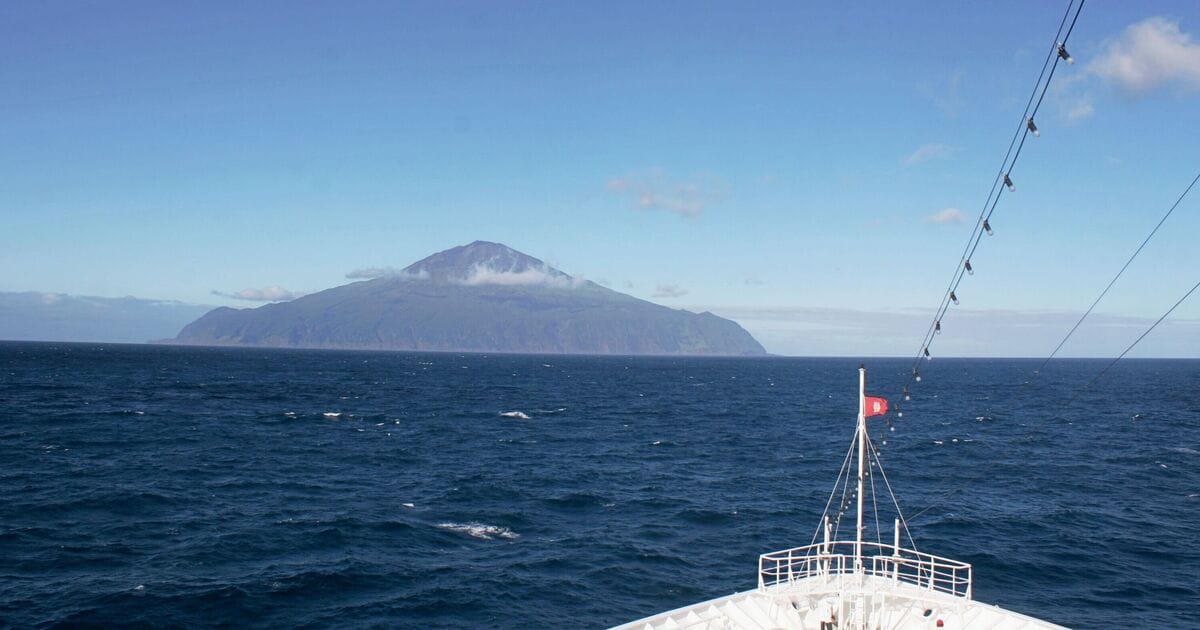Located midway between southern Africa and South America lies the world’s most remote island, which lies thousands of miles away from civilisation.
The volcanic island of Tristan da Cunha, home to 242 residents, is cut off from the rest of the world – with no phone network, no reliable internet and no airstrip.
The nearest town is over 1,500 miles away and its only link to the outside world involves a six-day boat trip across the South Atlantic Ocean.
With only nine supply ships docking at Tristan da Cunha every year, getting essentials like food, medical supplies – and holiday gits – requires months of careful preparation.
However, despite all its challenges, the residents have created a unique way of life, built on self-sufficiency, community spirit and an unrivalled connection to nature.
Kelly Green, a mum of two who moved to Tristan after living in England, shared glimpses of this extraordinary lifestyle with her 11,000 followers on TikTok.
As the island’s head of tourism, Kelly captures the quirky aspects of life, from sheep wandering through her home to helicopters transporting supplies across the rugged landscape.
The nearest civilisation is 1,514 miles away in Saint Helena, and getting to Tristan from the US – the most feasible route – involves a 15-hour flight to Cape Town followed by a six-day boat journey.
Tristan da Cunha is part of the British overseas territory of Saint Helena, Ascension and Tristan da Cunha and has a history going back to the beginning of the 16th century. It was settled by men from military garrisons and ships, who married native women from Saint Helena and the Cape Colony.
Farming is at the centre of the island’s economy – each resident is entitled to two sheep and each family to one cow, ensuring a steady supply of meat and dairy.
“The islanders are very self-sufficient,” Kelly revealed.
Live TV and news was not available until 2001 and Covid-19 never reached the island, she added. A close record of who comes and goes is kept, with the website updated every time a ship arrives or leaves.
All permanent inhabitants of the island have one of a list of just nine surnames due to the small population.
However, although some are related, there is a “large variety of people” who live on the island, meaning intermarriage and having children has not been a problem for the gene pool, according to a resident named Iris.
There is no newspaper on Tristan da Cunha and Conrad Glass, inspector of police, told Today: “There is local gossip which is much faster than the internet, but not always as accurate”.
“The island has two churches and one medical facility with a couple of permanent physicians and a visiting dentist,” he added. According to the island’s website, priests and some more specialised medical professionals may only visit for a few weeks or months at a time.
Conrad said: “When there’s a landslide, an earthquake or, heaven forbid, a volcano, there will be a gong rung to inform the heads of each family.
“We do have emergency supplies and emergency buildings.”





